When I was younger, I often felt self-conscious and socially awkward. In fact, one of the reasons I wanted to become a Behavioral Scientist was to be better socially.
If you often feel anxious and embarrassed, this guide is for you. It will give you the tools you need to be more relaxed in social settings, get out of your head and into the conversation.
This guide is for anyone who’s feeling overly self-aware, but examples are geared toward adults in work or at college.
Note: Sometimes, the underlying reason for self-consciousness is social anxiety. If this is the case for you, here’s our list of the best books on social anxiety.
Let’s get started!
1. Focus on someone or something
Self-consciousness comes from being overly concerned with how people see us. We worry that we won’t be seen as smart, attractive, or that others are judging us.
It can be exhausting, and with too little evidence to support the argument in either direction, we go straight to the most negative conclusion.
To get out of this pessimistic mindset, try shifting your attention to the people around you and your environment.
Focus not on what others think of you but on learning about the people you’re with. Make it a point to find out one thing about every person you meet. It could be their job, their major, or what they did on the weekend.
The objective is to get out of your head. Put that energy into the people around you rather than into feeding an inner dialogue that’s holding you back.
2. Question your inner critical voice
It’s easy to believe the negative voice inside our head is always right. But have you tried questioning it? You might find out that it has little to do with what’s real.
Check the evidence from your life:
Can you recall a time you did something that proves your inner critic wrong? For example, if your voice says, “I always mess up around people,” remind yourself of a time when you did just fine.
Ask yourself if what you are feeling is reasonable. Or, are you letting a perception you think others have of you, run the story in your head?
3. Know that people notice you less than you think
In an experiment, students were asked to wear an embarrassing t-shirt.
By the end of the day, the students who wore the shirts estimated that 46% of the class had noticed. When polled, only 23% of their mates actually had.[1] In other words, their embarrassing t-shirt was only half as noticeable as they had thought.
What feels mortifying to us is usually having little to no impact on others. People are caught up in their own thoughts and struggles, too busy to worry about ours. The best thing we can do is remind ourselves that no one cares as much as we do, and even our own filter is not a perfect lens.
4. Know that it’s OK to say some stupid things
I remember talking to a girl I was crushing on when I was in high school. She was talking about how her brother liked a band, and like a crazy person, I said, “Ya, I know.” Like somehow, I knew what group her brother liked. My crush looked at me strangely but kept going.
Did it make any difference to my crush? Not really. At this point, I can laugh about it, but at the time it felt humiliating.
Try turning the tables on the situation. Would you care if someone blurted out something silly? Or would it just pass you by without giving it extra thought? It’s better to talk freely even if you say something stupid every once in a while. The alternative is to always guard yourself, and that can make you come off as stiff and aloof.
5. Don’t try to fight your feelings
Emotions tend to cling harder when we fight them and weaken when we accept them.[2]
When you are anxious, and feeling uncomfortable in a social setting, what are you thinking about? How does thinking about that make you feel? Happy, sad, nervous, jealous? What’s your body doing when you’re in your head and feeling awkward at a party? Are you sweating, jumpy, yawning a lot (a reaction to nerves)?
Simply accept how you feel rather than trying to change it.
Now focus outward. Talk to someone. Ask them how they’re doing. What brings them to this party/event? Do they know anyone? Then check your head. How do you feel when you’re talking to someone? Do you get any less nervous as the conversation goes on? If you were blushing, has it subsided yet?
Practice going back and forth between your inner thoughts and how you feel when you are talking to others. See if you feel better when you’re in your head, listening to your internal dialogue, or when you’re spending your energy on others.
6. Focus on your positive traits
This isn’t “think happy thoughts, and you’ll be fine.” Instead, you want to base your self-worth on your real, positive qualities rather than cynical and questionable self-talk. This is what we know is true:
- You have talents and abilities that give you fundamental value.
- This combination of characteristics makes you unique and memorable.
- You are worth spending time with and knowing.
Try to list your concrete skills like your mathematical ability, you’re a good writer, you’re multilingual, you’re a great cook. Then there are your personality traits. You’re kind, honest, genuine, funny, enthusiastic, etc.
Even if you can’t make a full list today, write one positive quality down every day and then review the list every week. When you have a comprehensive list, read it every day. You’re training your mind to focus on what you do well and to be able to access it quickly.
7. Make sure you’re reading the situation right
Negative experiences can teach us to be on guard and defend ourselves from criticism and hurt. This can affect how we perceive the world and the people we encounter.
Those of us who are overly self-conscious might believe the world will judge us harshly because that is what we’ve experienced. However, as I’ve pointed out, people don’t care that much about how we act or what we say. Every new person you meet thinks of you as a blank slate.
When you’re in a scary social situation, ask yourself, “Is there a chance my past experience is affecting how I’m seeing this interaction? Is there another, more realistic way I can approach his conversation?”
Believe people will be friendly, and most of the time, they will be. If not, it says more about them than you.
8. See yourself as a social observer
People watching is fascinating, and it shows us how our basic humanity makes us all messy, foolish, and funny. Go to the mall, grab a coffee/tea, and watch people walk with their friends. Listen in as they sit beside you and talk, or as they chase their kids down the hall.
Now notice their body language, their tone of voice, and eavesdrop on what they’re saying. What we’re doing is training you to switch your focus from yourself to others and to think objectively about what you’re witnessing.
Are people relaxed or stilted? Is their posture good, or are they slouching? When they talk, are they quiet, or does the volume go up and down with excitement? The more we see others being their imperfect selves, the more we’ll realize this is what ‘normal’ looks like.
Go into this observer mode when you walk into a room of strangers. It can help you be less self-conscious.
9. Assume that people will like you
This one is about the mechanics of being seen as confident rather than inhibited or self-conscious. When we feel uncomfortable, it can make us talk softer, hug our bodies with our arms, and speak faster to get the words out and move the focus off us as soon as possible. It can make us seem aloof, and even if we don’t intend to, it makes us less approachable.
Be confident and friendly right off the bat. Walk up to people with a warm smile and present yourself. If you’re uncertain about the details, look at how likable, confident people do it and learn from them. Assuming people will like you is a self-fulfilling prophecy. Assuming they won’t is, too.
10. Ask about others to take the focus off you
It’s easier to focus on someone else other than ourselves. When you meet someone for the first time, ask them what they do for fun. What are their hobbies, or do they have any pets? Listen carefully, nod, and give them signs that you are enjoying their story. Then add anything relevant that applies from your life. Things like your pets – what kind are they, their name, breed…or your hobbies. At the end of the day, you want to have a balance between learning about them and sharing about yourself.
The goal is to learn about someone else because it’s hard to be self-conscious when you’re focused on getting to know another’s interests and stories.
11. Make internal progress checks, not comparisons
Jealousy is a miserable emotion. It makes you feel small and worthless and sucks the joy out of everything. It’s like anger directed at someone else, but you are the one who feels crappy.
Avoid both overexaggerating someone else’s talents or trying to find flaws in them to make yourself feel better. No one is perfect, and tearing them down when you feel envious just retains the focus on you because you are still comparing yourself to someone else.
Here’s a thought: What if we were OK with the fact that someone is more accomplished than us? When we accept this, it helps us see ourselves differently.
Our value then has nothing to do with how successful we are or how good we are at something. We want to go from “I like myself because I’m good at…” to “I like myself.” (Period.) This makes our self-acceptance unconditional.
How do we accept that others are more accomplished than us and be OK with that? First, let that fact sink in, and allow all your emotions of envy and sadness to come to you. Accept those emotions rather than fight them. Now, you no longer need to fear them. Afterward, you will be less prone to comparisons.
Here’s another way to do it:
Instead of thinking, “Well, at least I’m better than them when it comes to X.” Say, “I’m not good at everything, which is OK because my value isn’t based on my achievements. I have value because I am 100% myself”.
Let’s talk more about how to be more self-accepting…
12. Practice accepting yourself
Self-acceptance is one of the biggest steps we take towards achieving self-confidence.
According to Aaron Karmin, MA, LCPC, a psychotherapist in Chicago, Ill, a person “who accepts [themselves] unconditionally as a worthwhile human in spite of [their] faults and imperfections does not experience the stress of self-consciousness.”.[3]
Here are some things you can do to accept yourself:
- Decide how you are going to live your life. Will you let others define your personal image, your strengths, and your weaknesses? Try to move from blame, doubt, and shame to tolerance, acceptance, and trust.
- Make a list of all your good points.
- What do you do well?
- What are you proud of accomplishing?
- Whose lives have you made better?
- Connections you’ve made with others.
- Hardships you have overcome.
Review the list often, so you see your progress and acknowledge your gifts.
- Take an inventory of the people close to you.
- Are they good for you?
- Do they reinforce negative self-talk?
- Do they criticize or demean you?
Consider eliminating all the negative influences in your life.
- Surround yourself with a positive support group of people who celebrate you.
- Forgive yourself. If you made a mistake, realize you did your best with the information you had at the time, or you simply made a bad choice. But now you chose to move on and forgive yourself.
- Silence your inner critic. Just because it’s hard to hear doesn’t mean it’s right or 100% true. If you wouldn’t talk to someone else like you speak to yourself, why is it OK to do it to you? You’re human like everyone else. Treat yourself as well as you treat anyone else, if not better.
- Move on from your unrealized dreams. You can’t change the past. All you can do is move forward and continue to pursue your current goals.
- Help yourself see how you make others’ lives better. It’s harder to see yourself in a harsh light when you acknowledge all the good you do.
- Let it go – You can’t control everything. It’s not resignation. It’s a realization that your energy is better spent elsewhere instead of railing against the things you can’t change.
- Try to solve your problems one at a time. First, step outside your head where all the worry and self-doubt resides. Take a dispassionate look at what you need to do to move past each issue. You could even try imagining that the problems you’re facing are someone else’s (if that helps you get away from your internal thoughts). Ask yourself what advice you’d give them (yourself) to help?
- Practice Self-compassion – accept your flaws and love yourself anyway. Simple words, but for most of us, it takes years, if not a lifetime to master this step. The more you do it, the better you’ll get in every respect.
- Even though you may not have much experience being kind and compassionate with yourself, you will start to believe these good things you’re telling yourself. Especially if you keep this positive internal monologue up. In many instances, it took years to get to this place of insecurity. It will likely take weeks and months to see progress and make permanent changes to your mental habits.
13. Practice thinking about other’s needs
Try doing thoughtful things for others. Consider their struggles, worries, dreams or regrets. When you do, you take the focus off yourself and you’ll connect with them. This will help you be less self-conscious.[4] It will also show others that you are caring, and you value them. Done selflessly, it will bring good things back to you.
Here are some suggestions:
- Smiling at someone after you meet them. It could be a friend, family member, or acquaintance. Let the smile happen as you talk to them, so they know you are smiling just for them because it grows after you say, ‘Hi.’
- Hold a door for someone.
- Give a spontaneous compliment.
- Bring a friend or co-worker cookies or a pre-made dinner if they are sick or need a pick-me-up.
- Pay it forward. Pay for the coffee or drive-thru meal of the people behind you.
- Keep your area tidy and organized if you work in an open-concept office.
- Send cards for different occasions or for no occasion at all.
- Give someone 100% of your attention and note what they say so you can follow up later. (Ask them how ‘it’ went. Make sure they are OK afterward.)
- Consciously spend a few minutes every day thinking of the things you are grateful for.
A word of caution: Do not do these things to gain others’ approval. That puts the focus back on you. Do it out of sincere consideration for others. The purpose of the exercise is to focus on others and their well-being. When you do, you’ll become more compassionate and less self-conscious.
14. Consider talking to a Therapist
If your self-consciousness is inhibiting you or is a result of social anxiety, a therapist can be helpful. Having social anxiety is more common than we think, and deciding to understand and address the effect it has on your life is brave. A Psychologist or a Therapist will help you talk through your feelings, find out where they originate from, and give you the tools to unpack them and move forward.
We recommend BetterHelp for online therapy, since they offer unlimited messaging and a weekly session, and are cheaper than going to a therapist's office.
Their plans start at $64 per week. If you use this link, you get 20% off your first month at BetterHelp + a $50 coupon valid for any SocialSelf course: Click here to learn more about BetterHelp.
(To receive your $50 SocialSelf coupon, sign up with our link. Then, email BetterHelp’s order confirmation to us to receive your personal code. You can use this code for any of our courses.)
You can also try contacting your insurance company or doctor for recommendations.
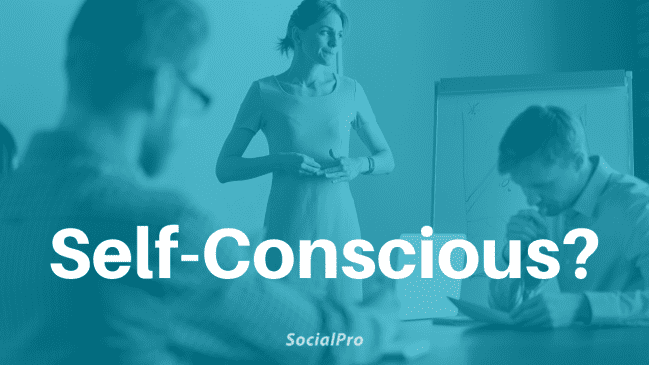





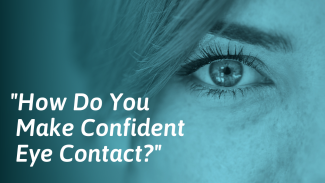
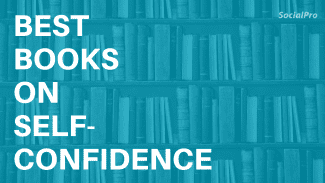
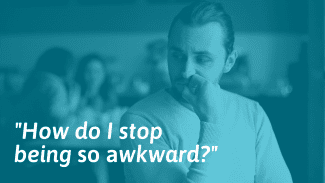
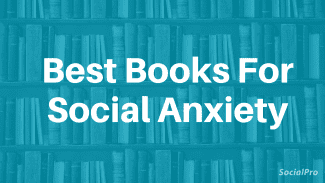
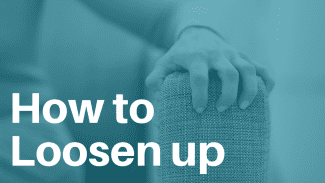
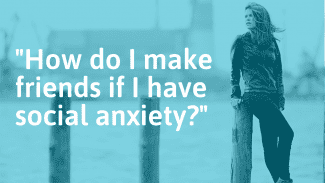
I’m afraid of being judged for how I look. I always get nervous when I talk with my classmates and especially when during oral recitation in my class. My self esteem and my confidence really below the zero I guess.
P.S. English is not my first language ????
don’t feel bad that english isn’t your first language because my Opa witch is dutch for grandpa is from the netherlands and he speaks dutch sometimes but it’s ok because the language you speak is what makes you who you are so don’t think that it’s not ok for english to not be your first language i personally think that whatever your first language is makes you unique
When I started highschool people judged me before they ever talked to me then my so called friends gave me a silly nickname it got so bad that I skipped school several times the truncey officer came out and was gonna arrest my mom but he saw how much I was struggling and gave me a referral to get a hsed or a ged so that was a solution resolved…
You are not alone really. I struggle with a lack of words everytime i am around people too, especially girls, so as a solution i am exposing myself more to social situations and i am really confident that one day i will get over this.
I’m afraid of not knowing what to say. Either to start the conservation or keep it going. If I manage to say hello and maybe a question I feel I’ve used all my energy up and I need to move on.
I am afraid people would make fun of me, or I would run out of things to say. I tend to drift away in a social setting sometimes. I think that is why I only have a limited friend because I do not want to be judge or make fun of.
In my case you can say that I’m afraid for everything. I’m insecure in my hart and in tension all the time I am awake. I went to a psychologist and he asked me if I had been exposed to torture or something like that and finally diagnosed me with anxiety. He gave me some advices but still it doesn’t work. What shall I do to be off with my tension, fear, luck of self confidence and restlessness and this is to bear in mind that I’m and I was good att school and good ability to be social and convincing person.
I used to(still am a bit but I’m getting better) be very afraid that if i said something weird people would hate me and they wouldn’t want to be my friends anymore, and it was a very stupid fear cause i am lucky to have great friends, but even to this day I sometimes feel that i said something weird and now people are going to laugh about me and are going to find ways to avoid me.
I used to(still am a bit but I’m getting better) be very afraid that if i said something weird people would hate me and they wouldn’t want to be my friends anymore, and it was a very stupid fear cause i am lucky to have great friends, but even to this day I sometimes feel that i said something weird and now people are going to laugh about me and are going to find ways to avoid me.
I am afraid of saying something stupid, something that would make me look dumb???? and made fun of.
Im really afraid of just being noticed in general, because back in middle and elementary school (im a freshman now) i was made fun of a lot. Now every time i go to a social event i freeze up and either don’t say anything or say the dumbest things and when i get home i just feel really awful. I make faces whenever im nervous, so i get weird looks a lot. It doesn’t help that i tend to like enjoy things that not a lot of people like or are interested in, (“emo” music and philosophical questions) so whenever i try to bring those subjects up in conversation, i get shut down pretty quickly.
I was very calm and quiet student in my school life although I wanted to be outgoing. I don’t have any close friends and loneliness is a part of my life. I have no one to tell how I feel. I never had a life partner. I am so afraid to talk with others. I can’t manage to address a gathering well. I think others will mock at me. I have a poor personality.
I used to be kinda popular, but now that I am in a new school I don’t have many friends and I feel like Im constantly being judged by everyone. I feel so stupid saying something, answering to a teachers question in class.. I feel like the way I walk is stupid and that everyone is secretly judging me and thinking that Im lame. I want to start talking with my classmates more, but I never know what to say. I really want that feeling that Im being judged to go away.
Steph I am in the exact same boat as you. I just moved across the country with my family and I am a freshman in high school. In my old school I had friends and I knew everyone there, it was amazing. But being in this new school, with my social anxiety and anxiety in general scares the crap out of me. I have barely talked to anyone and i’ve been at this school for a little over a month. I eat lunch alone and I feel like everyone is staring at me so I don’t eat. Its hard, especially since i’m a trans male. I want to be open and speak my mind, but these kids are really entitled here and just plain spoiled. Where I came from, this luxury was not given to me. I’ve hit it off with this one girl. Nora, shes really cool and we like a lot of the same things. We talked for a couple weeks, then we stopped. It was mostly me reaching out to her, and I thought I was annoying her. Ever since ive stopped reaching out, she hasn’t tried talking to me. I guess I know where I stand now. I want to talk to her again, but I don’t know what to say. I kinda like being a loner, but it gets hard sometimes you know.
I’m a 5’11 girl and I’m considered pretty by all of my mates and people I haven’t seen all my life. So, when I walk to somewhere, I feel like all the eyes are on me and that was true, they stare at me because of my height. Dating isn’t that tough for me but it is tough to handle those stares for no reason.
me and you are the same height and that is amazing <3
I’m scared that they think I’m not funny, I want to be the typical hyperactive of the group
I feel really judged when a teacher calls on me in my classes. It’s like, everyone’s eyes are on me, and I forget what I’m about to say and then my face gets really red. Like a tomato. lol- But sometimes I just need to remember that not everyone’s eyes are on me, – and most of the time – half of the people in my class aren’t even paying attention to the teacher. Just wanted to share my experience. Whoever is reading this: have a wonderful day! 😀
I feel so fearful in group conversations that no one will want to listen to anything that I say. That the things I say will fall flat, and be ignored and that everyone will see my humiliation. At times I feel like I have no personality and nothing to offer. Because I’m so self conscious, my mind goes blank and I just can’t think of anything to say. I was shy as a child and have felt imposter syndrome throughout my life.
Clare, i feel the same way sometimes but i’m the kind of person who will listen to you no matter what you say
I am more comfortable around people I don’t know than people I do know. It’s like the more I start to hang around someone, the higher the stakes bc they could decide they don’t like me, and that would hurt more than a stranger not liking me. I am very outgoing and friendly, but have this deep need for everyone to like and approve of me. In social settings, I feel like a spotlight is on me and I become very self conscious. I worry people won’t feel comfortable around me, and that they will pick up on my uncomfortable and self conscious vibe and not like me. I worry a lot how people feel around me, and the vibe I give off. I spend most of my free time alone, and only hang out with one person.
I have a fear that people will think that I am dumb when I talk and that I may say the wrong thing. I also fear of being judged for my appearance.
I feel people will find me uninteresting and boring and would eventually stop talking to me.
I identified with one of the quotes in the most recent email….someone mentioned fearing not sounding smart enough and trailing off and not finishing thoughts…I have that fear…that I won’t sound smart enough, be able to defend my position, or even know enough to sound interesting….and when I get anxious, I too forget the words or I begin to hear the sound of my own voice echoing in my own head and then I can’t focus.
I feel like I monopolize the conversation and worry so much that I didn’t give the other person enough of a chance to speak. I’m terrified of being mean, sometimes it even wakes me up at night because I worry so much that I wasn’t empathetic enough. I also worry that I’ve gotten coworkers into trouble unintentionally. I worry that I’m just a dark cloud and don’t have anything positive to offer.
Actually I’m among the socially detached people. The word ‘Ambivert’ can describe me the best. I enjoy my lonely time. But when I get bored enough being alone then I try to talk with others in social network sites. But I can easily get mixed with the stranger. I can talk with them easily. I know maybe that is unique. But my problem is I can’t be myself or I can’t be independent all the time. I don’t like to share my personal information with others. I’m kind of a sensitive person but I can also be changed with the environment. When I talk in a social group I feel hesitation and I just don’t know why I feel it. Someone suggest me how to be less sensitive during social group conversation.
Loseing her is actually the scariest thing I can think of.
I am a girl with cleft lip. When I was a kid, I feel like people staring at me and wondering how weird that my lips and nose look like.
I was afraid to go to school because some classmates asked about what happened to my lips and nose.
I dare not speak up because I have heavy nasal voice due to the cleft lip. When I was young, my classmate made fun of me by imitating my voice. Some people couldn’t hear my voice clearly and they asked me to repeat what I say all the time. Once, my mother yelled at me to stop murmuring. She couldn’t hear what I said. So, I lack confidence to speak to others and of course in public as well.
Nowadays, people gain more information and knowledge about cleft lips. So I feel more accepted in the society. And, I realised that it’s me who cannot accept my cleft lip, not others. Others really don’t care how you look. They care how you act.
And, I find people actually can hear what I say in generally if I speak louder and with confidence. Still sometimes, I can’t pronounce some sounds correctly. But who cares. I just treat it like a guessing game for others. And they always get the correct answers.
I am afraid, of what people might actually think of me when I open myself up,
afraid that if I open up will then judge me, or will they start saying mean things about me immediately I speak.
What I am actually afraid of, it that people seeing the uninteresting part of me, that they will start making a false accusation of me(gossiping)
I have fear of not being able to pass an idea through, to transmit my ideas to others and to be seen like someone who has crazy ideas about life and not worth to talk to, due to the improbability of learning something new. It sounds a bit complex but I guess I just feel like an outsider who wants to feel on the same frequency of the people around me. I probably suffer of RSD.
I feel like they are judging me at my every word and every move witch makes me feel nervous so I avoid talking
Hey Maeve, I really found myself in your comment so I wanted to reply.
I started high school in September 2020. It was a new, bigger school with lots of more people. People that I didn’t know. In middle school, I used to be a social butterfly. I had lots of friends and I guess you could say I was pretty popular. When I started high school however, everything changed. For the first 2 months I could barely talk to anyone. I was afraid that I always looked stupid and that I was constantly being judged by everyone. I thought the way i walked, talked or looked was just plain stupid. So I avoided any contact with anyone. I had no friends. Every day after school I would come home crying cause I felt so lonely. Then I started talking to this girl and now we sit together in class and talk. I feel a lot better but the feeling that I’m being judged hasn’t gone away.
Hi Steph I just wanted to say thank you for replying to my comment I just wanted to ask how did you bring yourself to talk to the girl you started to talk to I have a lot of trouble making new friends as well.
Hi Maeve when i was reading your comment i saw that you are having trouble making friends i feel the same way all the time but my freshman year of high school during second semester in my algebra class we had a new student named samuel but he likes to go by Sam but when my teacher told the class to pick a partner nobody wanted to partner up with sam but i took the initiative and partnered up with sam and ever since that day me and sam have been really good friends and i consider sam as a brother because he has autism and people pick on him about it but i stand up for him and tell the people to stop being rude to him
I empathize with so many of the views expressed here. Fear of being wrong, fear of hurting another person, fear of saying something stupid/unintelligent, fear of being different and thus drawing more attention… I feel them all. Thank you for sharing. It is nice to know I’m not alone. Maybe in social situations I can shift the spotlight from my own fears and try to help others, who may be feeling the same thing, feel more comfortable?
I’m feel like I’m an outsider. People may look at me and just turn away. Why talk to me. Like I’m judged by how I look. They know I’m awkward and shy. They sense it.
I’m afraid of being wrong about something. I recently joined a d&d club and I overthink what I’m going to say so I never really say anything, also I’m afraid that I’ll do something weird on camera (we are doing zoom because of COVID) and I feel very stiff, and I laugh a lot even at people’s dumb jokes, so I have to turn off my camera. One time I cried because I was about to say something but when I opened my mouth it didn’t come out all the way, so I just awkwardly said “Or” in a weird high pitched tone. No one seemed to notice me because everyone was talking over each other. But it turned out I was wrong so I thought, “Gee, I’m really glad I didn’t say that!” Then I cried (with my camera and mic off). Another time I got mansplained when I said a good joke (because I’m quiet), and another I made a collaboration to an idea but it turned out my mic was off, another I said something boring and an awkward silence followed. All of these situations are making me feel like I just shouldn’t talk at all. I like the people in my group and can talk in our group chat we set up, and I really want to do d&d but I just can’t say anything. Also I don’t have any friends at the school and want them to be my friends so I feel even more pressured because of that.
I feel same way ,when the words you want to say geat stock in your throat
You over thinking